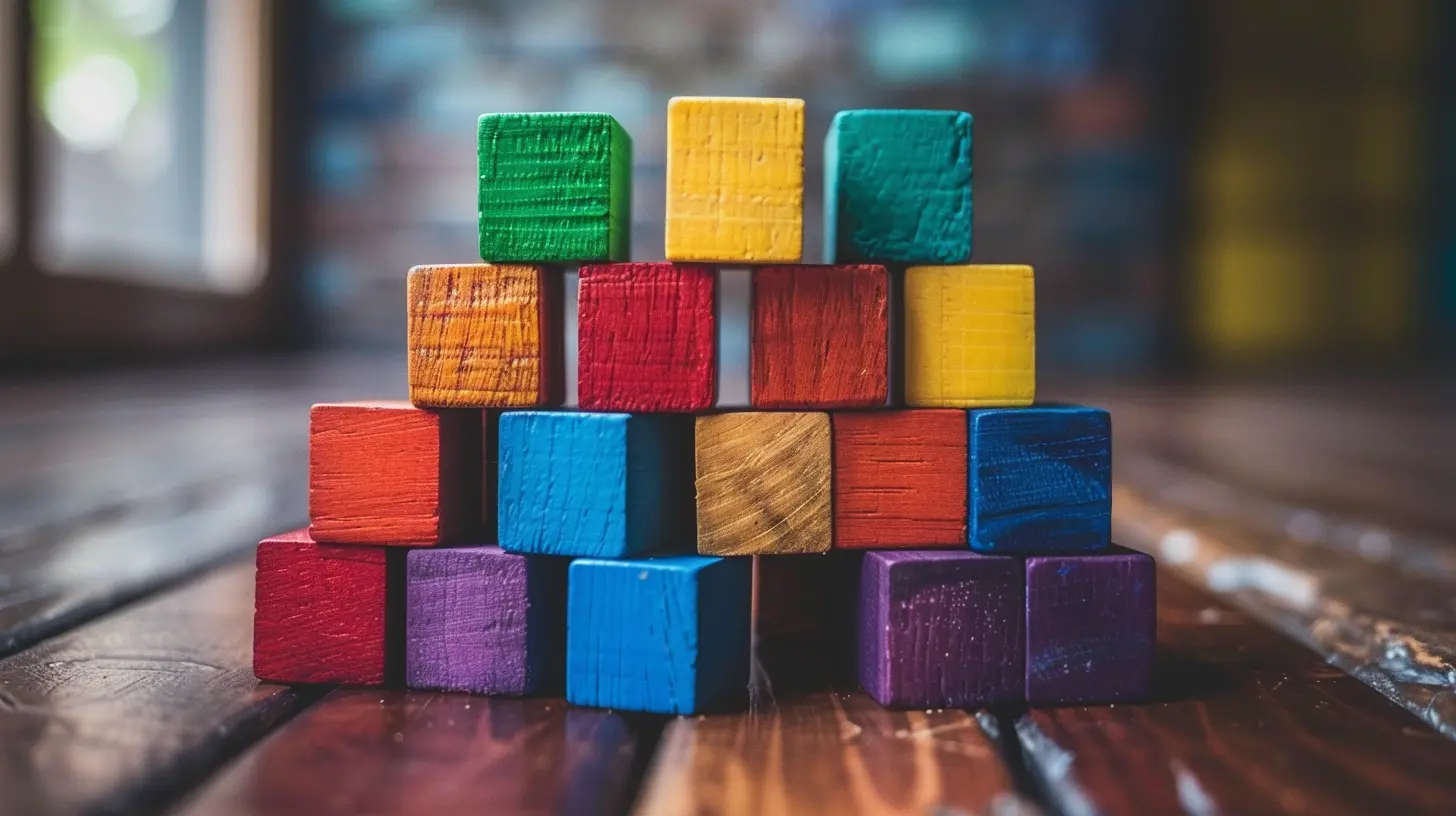15 April 2025
Problem-solving is one of the most valuable skills a child can develop. It’s the foundation of critical thinking, creativity, and independence. But how do we, as parents, foster these skills in our little ones?
The good news is that problem-solving isn’t something kids are simply born with—it’s something they learn. And you play a massive role in helping them figure things out. Every puzzle they piece together, every challenge they overcome, and every decision they make contributes to their ability to navigate life effectively.
In this article, we'll dive into why problem-solving is important, how children develop these skills, and what you can do to encourage them in the early years. 
Why Problem-Solving Skills Matter in Early Childhood
Children face challenges daily, from figuring out how to build a block tower to resolving a disagreement with a friend. Problem-solving helps them:- Think critically – They analyze situations, break them down, and find solutions.
- Build confidence – When they solve problems independently, they develop self-assurance.
- Enhance creativity – Finding multiple solutions to a problem boosts their imagination.
- Develop resilience – Learning to handle setbacks teaches them persistence.
Teaching kids how to solve problems early sets them up for success in school, relationships, and future careers. 
How Do Kids Develop Problem-Solving Skills?
Problem-solving isn’t just about finding answers—it’s about the process. Kids learn through trial and error, observation, and experience. Here’s how they naturally develop these skills:1. Observing Others – Children watch how parents, teachers, and peers handle difficult situations.
2. Experimenting – They test ideas, often making mistakes along the way.
3. Asking Questions – Their endless "why" questions are part of figuring things out.
4. Playing – Creative and structured play builds logical thinking and problem-solving.
The goal is to guide and support them in this learning process rather than simply giving them answers. 
10 Ways to Encourage Problem-Solving in Early Childhood
1. Let Them Struggle (A Little)
It’s tempting to jump in and solve problems for your child, but stepping back is crucial. If they’re trying to fit a puzzle piece, resist the urge to do it for them. Let them experiment, fail, and try again.Think of it like riding a bike—if you always hold on, they’ll never learn to balance on their own.
2. Encourage Open-Ended Play
Toys with a single purpose (like some electronic gadgets) don’t encourage problem-solving. Instead, opt for:- Building blocks
- Puzzles
- Playdough
- Dress-up clothes
These activities allow kids to use their imagination, create new solutions, and test different ideas.
3. Ask Open-Ended Questions
Instead of giving answers, prompt your child to think critically. For example:- “What do you think will happen if we mix these two colors?”
- “How can we make this tower taller without it falling?”
- “What’s another way to solve this problem?”
Questions like these train their brain to explore multiple possibilities rather than seeking a single correct answer.
4. Model Problem-Solving
Children imitate what they see. If you handle challenges calmly and logically, they will too.Let’s say you're cooking and realize you're out of a key ingredient. Instead of panicking, say, "Hmm, we don’t have eggs. What can we use instead?" This teaches kids that problems aren’t roadblocks—they're puzzles to solve.
5. Encourage Trying Different Solutions
If your child is frustrated because their toy won’t work, instead of fixing it immediately, say:- “What else can we try?”
- “Is there another way to do this?”
- “Do you remember a time when you solved a similar problem?”
Guiding them to explore different solutions helps develop persistence and flexibility.
6. Let Them Make Decisions
From choosing their outfit to deciding what book to read, give your child opportunities to make choices. Decision-making strengthens their analytical thinking and helps them understand cause and effect.If they pick summer sandals for a snowy day, instead of saying "No, that's wrong," you might say "Hmm, do you think your feet will stay warm in those shoes?" Let them think through their decision instead of just correcting them.
7. Turn Everyday Challenges Into Lessons
Life is full of small problems—use them as teaching moments!- If you accidentally spill something, say, “What should we do now?”
- If a toy is missing, ask, “Where do you think we should look first?”
- If they’re struggling to open a jar, encourage, “What else could we use to help?”
These real-life moments help kids see challenges as normal and solvable.
8. Encourage Group Play
Playing with other children helps develop problem-solving through teamwork. They’ll learn to:- Compromise when playing a game
- Share toys and take turns
- Resolve disagreements
Cooperating with others teaches valuable negotiation and reasoning skills.
9. Read Books That Promote Problem-Solving
Stories where characters overcome obstacles are fantastic teaching tools. Some great books include:- Rosie Revere, Engineer by Andrea Beaty (about perseverance)
- What Do You Do With a Problem? by Kobi Yamada (about facing challenges)
- The Most Magnificent Thing by Ashley Spires (about trial and error)
Books offer examples of problem-solving in action, giving kids ideas they can apply in real life.
10. Praise Effort Over Results
Instead of just saying "Good job!", focus on their effort:- "I love how you kept trying different ways to solve that puzzle!"
- "You didn’t give up, even when it was tricky—I’m proud of you!"
- "I like how you figured that out all by yourself!"
This reinforces persistence and resilience, which are key traits of strong problem-solvers. 
Final Thoughts
Problem-solving is like a muscle—the more kids use it, the stronger it gets. By giving them opportunities to think critically, test ideas, and solve problems on their own, you're helping them develop skills that will benefit them for life.Remember, the goal isn’t to raise kids who never struggle—it’s to raise kids who know how to handle struggles. So next time your child faces a challenge, take a step back, ask a guiding question, and watch their mind grow.




Zanthe Yates
Ah yes, because nothing says ‘great parenting’ like watching a toddler wrestle with a puzzle for an hour while you sip your coffee, pretending it's a great life lesson instead of a caffeine break!
April 17, 2025 at 4:35 AM